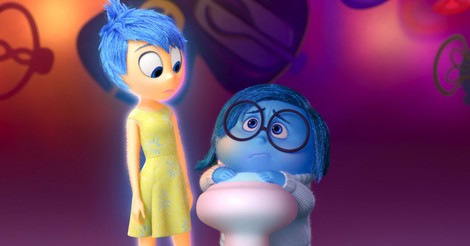Your podcast discovery platform
Curious minds select the most fascinating podcasts from around the world. Discover hand-piqd audio recommendations on your favorite topics.

piqer for: Global finds Health and Sanity Doing Good
Bangalore-based Rashmi Vasudeva's journalism has appeared in many Indian and international publications over the past decade. A features writer with over nine years of experience heading a health and fitness supplement in a mainstream Indian newspaper, her niche areas include health, wellness, fitness, food, nutrition and Indian classical Arts.
Her articles have appeared in various publications including Mint-Wall Street Journal, The Hindu, Deccan Herald (mainstream South Indian newspaper), Smart Life (Health magazine from the Malayala Manorama Group of publications), YourStory (India's media technology platform for entrepreneurs), Avantika (a noir arts and theatre magazine), ZDF (a German public broadcasting company) and others.
In 2006, she was awarded the British Print-Chevening scholarship to pursue a short-term course in new-age journalism at the University of Westminster, U.K. With a double Masters in Globalisation and Media Studies from Aarhus Universitet (Denmark), University of Amsterdam and Swansea University in Wales, U.K., she has also dabbled in academics, travel writing and socio-cultural studies. Mother to a frisky toddler, she hums 'wheels on the bus' while working and keeps a beady eye on the aforementioned toddler's antics.
Let The Dark Wash Over You, Say The Scientists (And The Philosophers)
Negativity is having its moment in the sun.
A growing body of evidence is suggesting that recognition and acceptance of our dark side will provide us with better emotional resilience. In an age that celebrates optimism and positivity, the pressure to suppress our negative feelings, our resentments and our anger is great. It is much more fashionable, especially on social media, that temple of projected positivity, to appear to be happy, successful, well-adjusted super human beings.
In the latest such study on negativity published in the Journal of Personality and Social Psychology, the links between emotional acceptance and mental well-being were tested in more than 1,300 people, across socio-economic, gender and racial divides. The results indicated that rather than a low-stress life, it was the capacity to be tolerant about life's difficulties and mindful of negative feelings that helped people cope better with symptoms of depression and anxiety. Researchers are planning to deepen the study by also taking into account cultural factors and upbringing to understand how some people are better able to cope with life's ups and downs.
Interestingly, many Eastern beliefs as well as the Hellenistic philosophy of Stoicism pretty much propagate similar thoughts — as do fancy therapies like mindfulness. All of them essentially tell us that happiness comes not from the absence of pain but the acceptance of it. And by acceptance, both the modern scientists and the ancient philosophers mean recognizing that we are feeling angry, jealous or depressed, being in touch with what we are feeling and letting it wash over us instead of opting for escapism or trying pretense. Paradoxical this certainly is; and acceptance of negative feelings is not as easy as it sounds.
For what we are being asked to do for better psychological health is to keep it real. And that has always been a big deal, if not the biggest.
